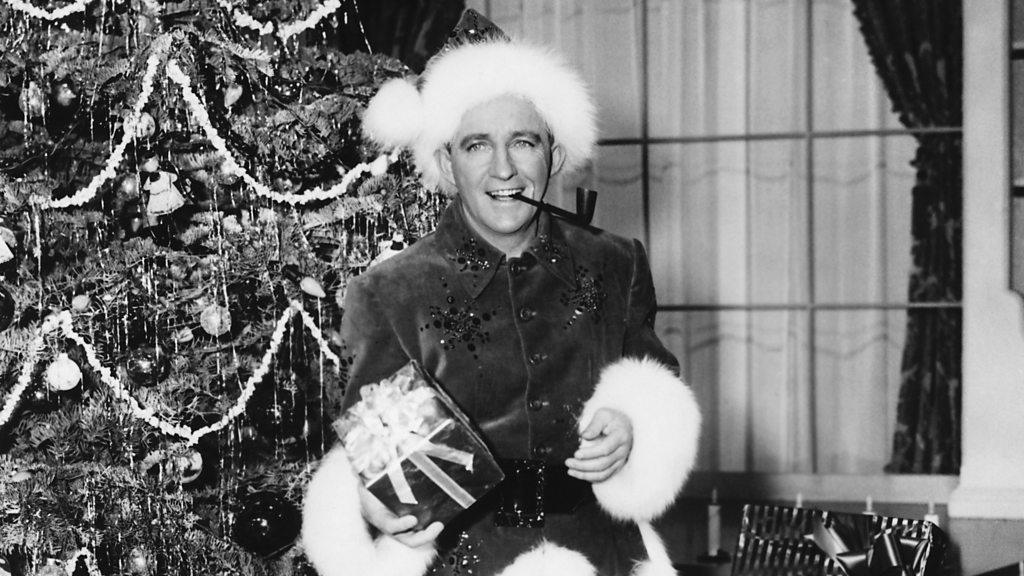White Christmas: Will it snow in Northern Ireland on 25 December?
- Published
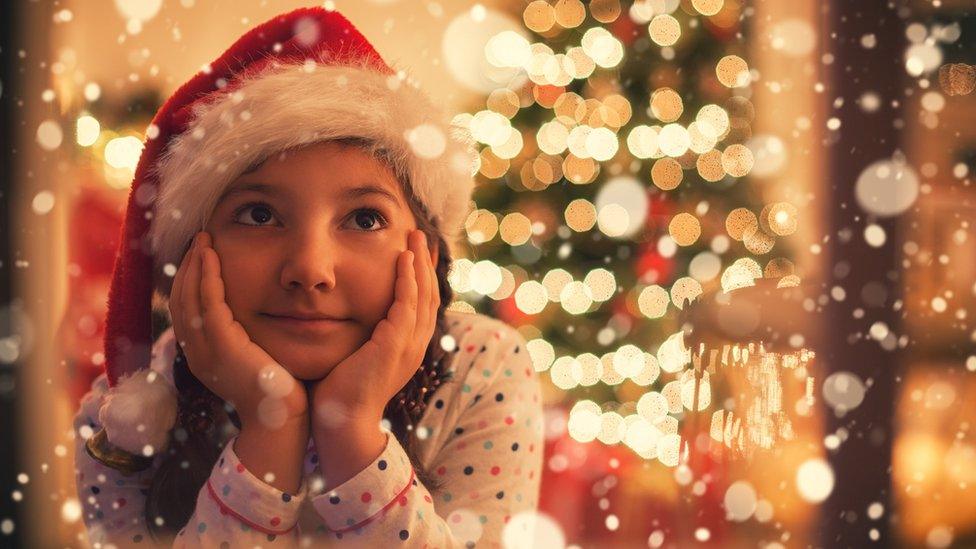
Many of us dream of snow at Christmas, but it's much more unlikely than pop culture might have us believe
It's more than 80 years since Bing Crosby first famously shared his dream of a white Christmas.
The song's a perennial favourite, a yearning for the perfect Christmases of yesteryear, with a wish that everyone might share the joy of a magical Christmas blanketed in snow.
A white Christmas, the song suggests, is the perfect Christmas.
But in Northern Ireland, there haven't been many snow sprinkled Christmases in recent years.
Christmas movies, TV adverts, shop window displays and Christmas cards love to depict the magic of a Christmas blanketed in snow - it's an ideal that's central to much of the festive season's cultural messaging.
But meteorologically speaking, snowfall on Christmas Day is largely an atypical occurrence.
So why is the link between Christmas and snow so strong?
"Maybe it's because Santa is from the North Pole and we think that's how Christmas is meant to be," said BBC NI weather presenter Barra Best.
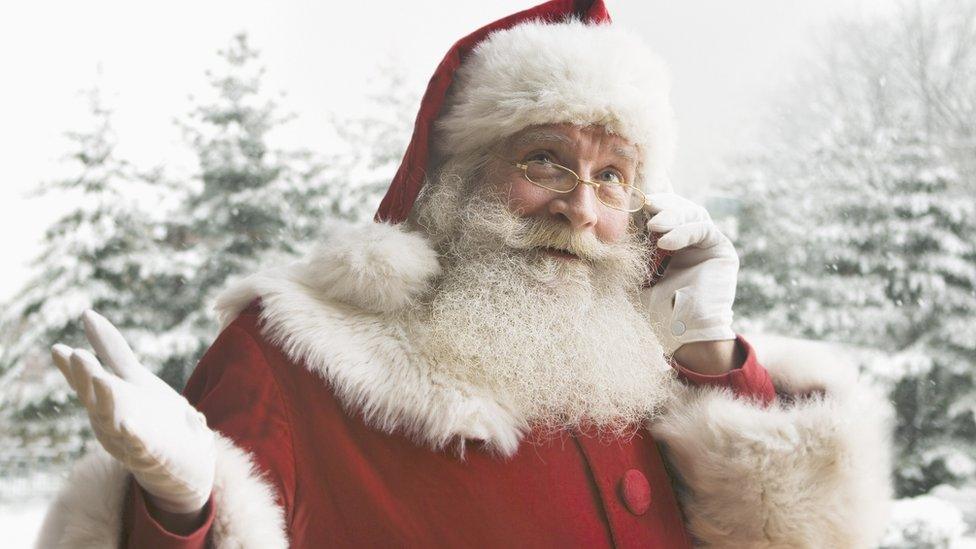
Might we think of Christmas snow because of Santa's North Pole home?
There's been 17 official white Christmases in Northern Ireland in the last 50 years, the weather presenter told BBC News NI.
But "that doesn't necessarily mean that winter wonderland blanket covering of snow outside your front door," he added.
"That's the romantic idea of Christmas - the one we have all been sold by movies and Christmas cards, that it has to be white."
What's the weather forecast for Christmas Day 2023?
Last month, BBC News NI reported that snow is the hardest thing to forecast.
But it doesn't look like anyone will be forecasting it for Christmas Day this year.
"Unfortunately, for those hoping for one, 2023 will not have a white Christmas as it will be just too mild," Barra said.
"Temperatures on the 25 December are forecast to be between 9C and 10C, a few degrees milder than it should be for the time of year."
However, he said cooler conditions are set to follow from Boxing Day "with temperatures back to normal".
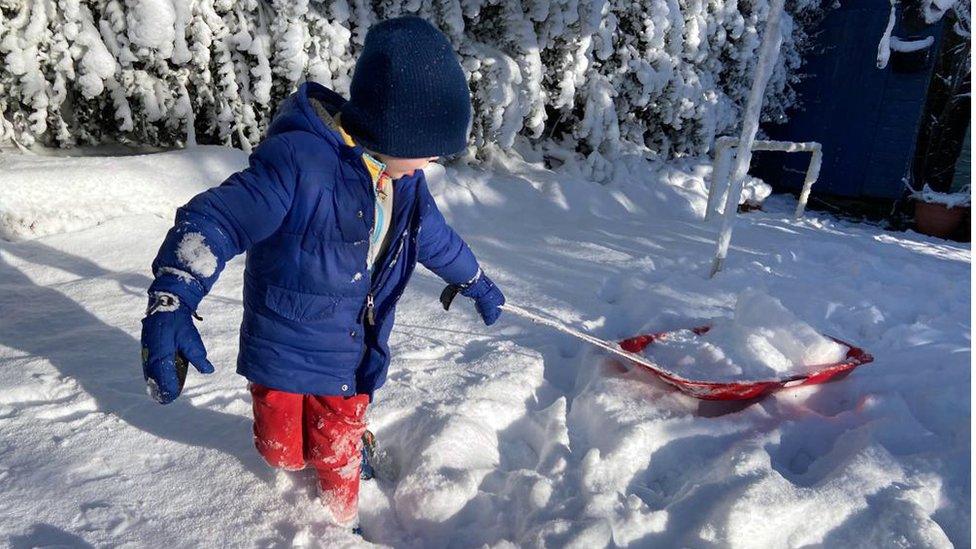
The Met Office says snow is more likely in the month of March, as it did this year, than at Christmas
According to the Met Office, snow is much more likely in Northern Ireland during the months of January, February and March than in late December.
For a white Christmas to be declared, just a single flake of sleet or snow has to be recorded at least one of the official Met Office sites in Northern Ireland., like it did in Londonderry and Armagh in 2022.
The last time snow covered Northern Ireland on 25 December, Barra said, was in 2010 - the winter of a big freeze in the UK.
It was the snowiest Christmas Day on record in Northern Ireland with 17cm of snow recorded at Hillsborough in County Down.
"But it wasn't an official white Christmas because there was no fresh snowfall," he said.
What the Dickens?
While Bing Crosby's White Christmas dates back to the 1940s, an English literary great is often credited with popularising much about Christmas and the traditions of the season.
According to Queen's University Belfast's Dr Leon Litvack, Charles Dickens is "the instigator of Christmas as we know it".
Dr Litvack is the principal editor of the Charles Dickens Letters Project.

Dr Litvack says Charles Dickens is responsible for popularising many of our Christmas traditions
Dickens' A Christmas Carol - the tale of the miserly Ebenezer Scrooge who is shown the error of his ways in a series of ghostly visits on Christmas Eve - was first published in 1843.
Dickens had, Dr Litvack said, a "great awareness of the role of snow and of winter in creating the ideal of Christmas".
The Christmas of Dickens book is a snow filled one.
Many of the other Christmas associations in the book, Dr Litvack added, "are now part of our Christmas culture".
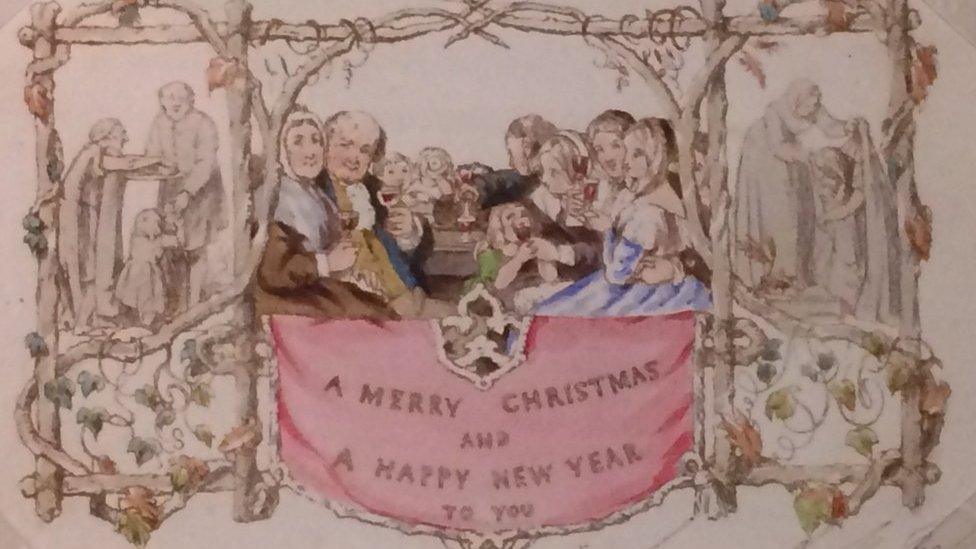
The first commercial Christmas card was also created in 1843, the year Dickens' A Christmas Carol was published
"There's carol singing, there's eating turkey or goose and playing games like charades or blindman's buff, we have visiting people and Christmas being a time of good cheer and Christmas spirit," he said.
Christmas TV adverts
In recent, more commercialised years, it wouldn't be Christmas without a big budget TV campaign.
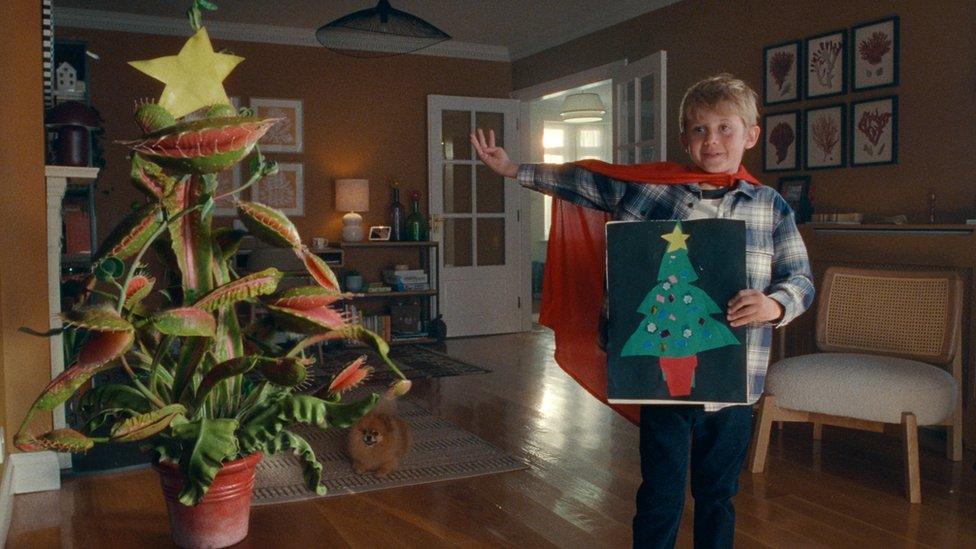
A young boy tries to grow the perfect Christmas tree in John Lewis's 2023 advert
Lynne Deason, of research agency Kantar, said snow commonly plays a prominent role and the strongest campaigns, like this year's sleighing elderly ladies in Amazon's snowy advert, place the brand at the heart of a shared experience.
"Advertisers will tap into its symbolism, something that we can trace back to the Victorian era and to Dickens," she added.
Related topics
- Published27 November 2023
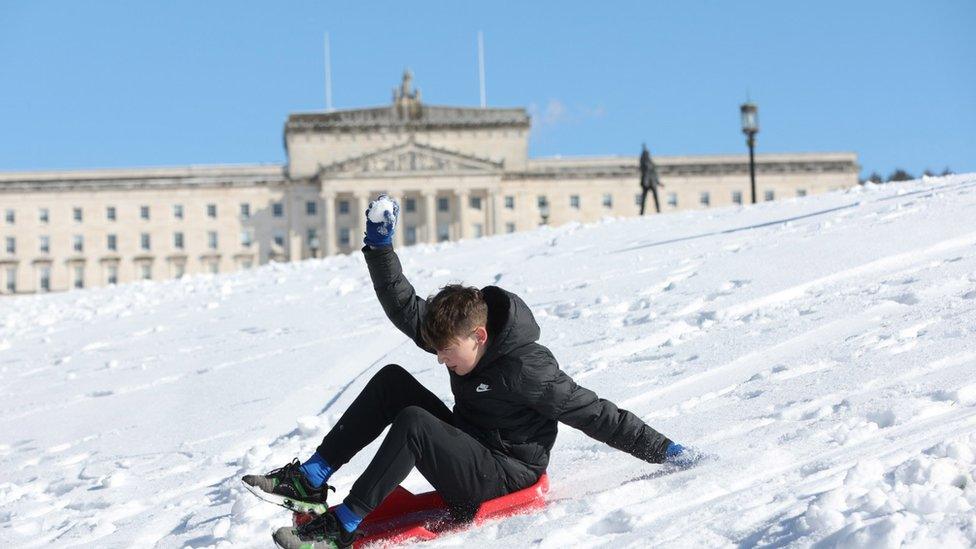
- Published26 December 2022
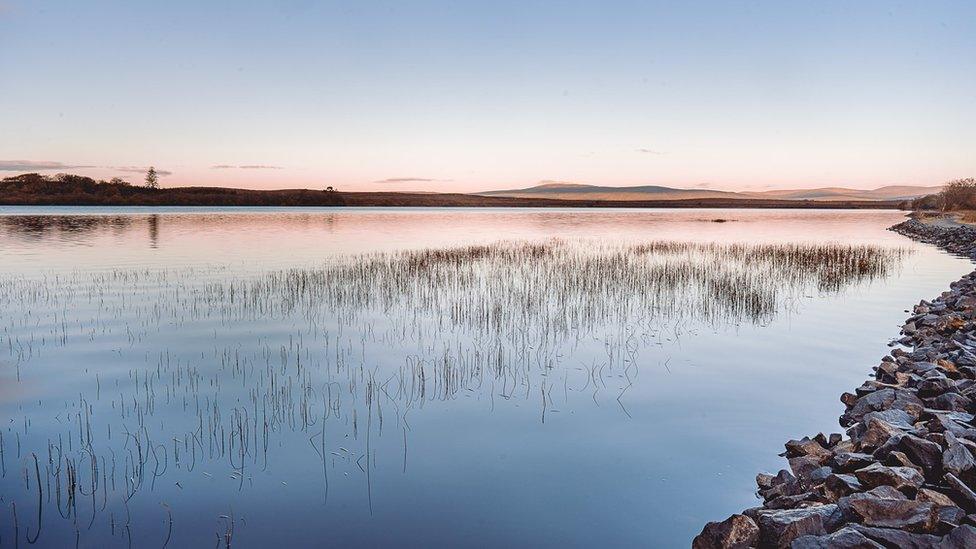
- Published24 December 2021

- Published25 December 2020
